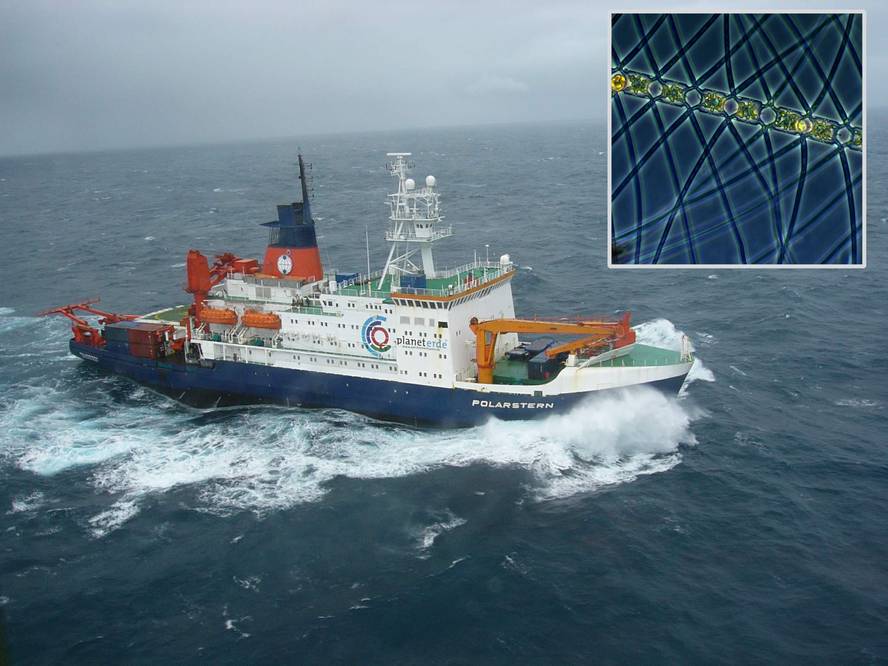Phytoplankton is appropriate to sink carbon dioxide

A group of marine scientists have conducted a large experiment to find out if the addition of iron to the sea can cause the sinking of carbon dioxide by increasing phytoplankton. The result has been affirmative: phytoplankton is ideal for sinking carbon dioxide into the sea. Some believe that this effect, if produced on a larger scale, would cause a cooling of the climate.
The idea was presented by the ecologist John Martin. “Give me a large container full of iron and I’m going to make the next ice age,” he said. Iron is a compost for phytoplankton algae and can cause a bloom of algae, that is, a sudden increase in the sea. Algae grow by absorbing carbon dioxide, increasing considerably and absorbing large amounts of carbon dioxide from the atmosphere. It is believed that the Earth's greenhouse effect could be reduced and, in that case, the climate would cool.
But if the effect persists, it is necessary to sink the algae, otherwise there could be a risk of recurrence and return of carbon dioxide to the atmosphere. At the Marine and Polar Research Institute in Handelshafen, Germany, biologists have shown that they sink. Within the EIFEX (European Iron Fertilization Experimental) project, they have held a large-scale session. Fourteen tons of iron were issued in a marine whirlpool that was dispersed by the movement of water. Two weeks later, an increase of visible satellite phytoplankton appeared. Over time, zooplankton fed this phytoplankton and scientists followed the residues — the excrements of zooplankton and dead algae cells. More than half of this biomass sank below 1,000 meters; experts believe that this carbon dioxide will be sunk for centuries.
The experiment had two readings. On the one hand, what is related to the past: climate cooling may be related to the iron dust falling into the sea. And on the other hand, the future: there are those who think that if iron is poured into the sea the climate cools, whenever it is very large. However, the researchers have stressed that we should take into account the ecological consequences that this would have.





